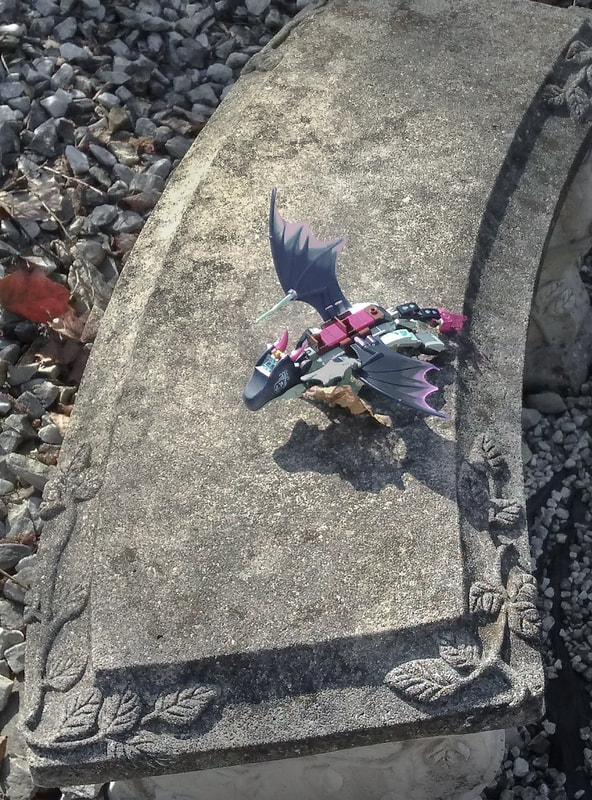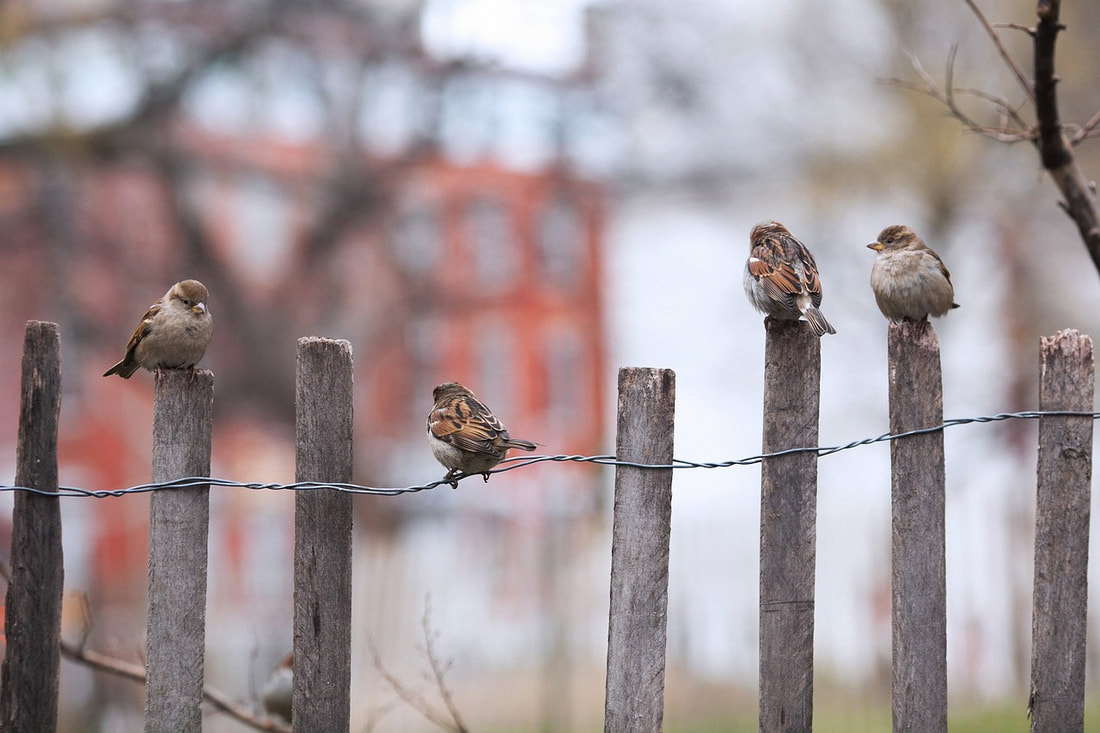ScribesMICRO
* Managing Editor: Edward Ahern *
* Associate Editor: Alison McBain *
* Special Features Editor: Matthew P.S. Salinas *
* Poetry Editor: Mary Keating *
* Featured Contributor: Huina Zheng *
Submission Editors:
* Sarah Anderson * P.C. Keeler * P.M. Ray *
* Ira Rosofsky * Felicia Strangeways * Amita Basu *
* Julie Cadman * Scott Bogart * Micah C. Brown *
* Associate Editor: Alison McBain *
* Special Features Editor: Matthew P.S. Salinas *
* Poetry Editor: Mary Keating *
* Featured Contributor: Huina Zheng *
Submission Editors:
* Sarah Anderson * P.C. Keeler * P.M. Ray *
* Ira Rosofsky * Felicia Strangeways * Amita Basu *
* Julie Cadman * Scott Bogart * Micah C. Brown *
Issue # 38
February 16, 2024
Featuring the short scribblings of:
* Joem Antonio * Gary Bloom * Chris Cochran * Kelly Dwyer *
* Lee Hammerschmidt * Elizabeth B.D. Johnson *
* K.F. Lerner * Sean MacKendrick * Luca Mainardi *
* Sabina Malik * Angelle McDougall * Mary Anne Mc Enery *
* Sue Montgomery * JS O'Keefe * Ken Poyner *
* Terry Reilly * Connie Shakalis * Beth Sherman *
* Kathy Steinemann * Huina Zheng *
* Joem Antonio * Gary Bloom * Chris Cochran * Kelly Dwyer *
* Lee Hammerschmidt * Elizabeth B.D. Johnson *
* K.F. Lerner * Sean MacKendrick * Luca Mainardi *
* Sabina Malik * Angelle McDougall * Mary Anne Mc Enery *
* Sue Montgomery * JS O'Keefe * Ken Poyner *
* Terry Reilly * Connie Shakalis * Beth Sherman *
* Kathy Steinemann * Huina Zheng *
Featured Author
Interview with Huina Zheng
Hello, and thank you for joining us in the thirty-eighth issue of ScribesMICRO. I’m the Associate Editor Alison McBain, and our interview today is with our featured poet AND writer for 2024, Huina Zheng. Huina, thank you for taking the time to answer a few questions for us.
Huina Zheng holds a M.A. in English Studies degree and serves as an Associate Editor for Bewildering Stories. Her stories were published in Baltimore Review, Variant Literature, Midway Journal, and elsewhere. Her fiction “Ghost Children” was nominated for a Pushcart Prize. She lives in Guangzhou, China with her husband and daughter.
Huina Zheng holds a M.A. in English Studies degree and serves as an Associate Editor for Bewildering Stories. Her stories were published in Baltimore Review, Variant Literature, Midway Journal, and elsewhere. Her fiction “Ghost Children” was nominated for a Pushcart Prize. She lives in Guangzhou, China with her husband and daughter.
|
You’re a very versatile writer, as well as an editor at Bewildering Stories, and ScribesMICRO has published poetry, fiction, and creative nonfiction by you. How did you come to write so many genres and forms, and what led you to be an author? My passion for reading spans a vast spectrum of cultures, genres, and eras, influencing my writing style. Despite growing up in China, where extracurricular reading was discouraged, I secretly devoured books, seeking diverse narratives beyond the academic mold. This clandestine love for literature laid the foundation for my writing journey, which began with contributions to local newspapers and evolved amidst my career guiding Chinese students in their U.S. university applications—a role that indirectly kept my writing dreams alive. The pandemic, a poignant reminder of life's uncertainty, spurred me to embrace my writing aspirations more fully. I enrolled in Emory University's Creative Writing Program, a decision facilitated by the shift to online education. At Emory, the positive feedback and encouragement from classmates and an exceptional instructor, Jennifer Taylor, contrasted sharply with the critique-focused Chinese educational system. This supportive environment, particularly Jennifer's endorsement of my inclination towards darker narratives, like "Ghost Children," not only boosted my confidence but also led to the publication and accolade of my works. Who would you say are your major influences in regards to your work? From who or what do you draw your inspiration? In my formative years within China's rigorous educational system, I clandestinely explored the world's literary masterpieces by Dickens, Hugo, and Tolstoy, finding solace in their pages under the veil of night. Their narratives, rich in societal critique and moral complexity, starkly contrasted with the monolithic, moralistic content of our prescribed readings, which glorified filial piety, patriotism, and altruism. Particularly, Hugo's Les Misérables, with its nuanced exploration of moral ambiguity, profoundly impacted me, offering a perspective that transcended the black-and-white moral teachings of my upbringing. This immersion in foreign literature, embodying freedom of expression and a diversity of thought, has shaped my writing. As I craft narratives set against the backdrop of Chinese society, I draw from these literary traditions, striving to infuse my English-language stories with the stylistic nuances and expressive freedoms of these classics. This approach not only liberates me from the constraints of Chinese education but also aims to present the complexities of Chinese culture and customs to an international audience through a lens enriched by global literary heritage. What are you working on right now? In my two-year online novel program, I'm writing a story set in a 1990s Chinese village, depicting Zhang Yao's return to start a brick factory, a venture that estranges him from his distant family. His daughter, Zhang Xue, grapples with belonging after her return, six years post-birth, navigating the complexities of family dynamics intensified by the one-child policy. The narrative probes the irony of pursuits misaligning with outcomes and the feasibility of reclaiming initial intents amidst evolving personal and familial landscapes. The novel's final themes are still unfolding, expected to crystallize during revisions. One anticipated outcome is Zhang Xue's journey towards understanding and reconciliation with her father, marking her personal evolution. Concurrently, I'm crafting a series of short stories inspired by “Ghost Children,” aiming to weave a thematic tapestry that expands upon the novel's exploration of family, identity, and the nuances of human desires. Pieces from this series, such as “Ghost Woman” and “When Cicadas Stopped Chirping,” have been published, offering glimpses into the thematic realm I'm constructing. Huina, thank you for taking the time to sit down for the interview and for being our featured writer for 2024! I greatly appreciate it, and I am sure the readers of Fairfield Scribes greatly appreciate it as well! |
Fiction
|
Breakup Trip by Huina Zheng Beneath a sky wavering between sunshine and rain, our singular journey unfolded. Along the beach, our hands hovered, hinting at a bond unformed. Rain’s taunt drove us to a cinema’s shelter, amidst the fusion of popcorn and perfume. There, you immersed in sci-fi wonder, I covertly craving horror’s chill. At dinner, your hotpot crackled with spices against my muted fare. Farewells were whispered under a sky, clearing its doubts at the train station. Promises of future calls lingered, but your gaze had already retreated to a realm beyond my reach. As the train claimed you, I realized our paths, like our hands that day, would never cross again.
* * * Huina Zheng holds a M.A. in English Studies degree and serves as an Associate Editor for Bewildering Stories. Her stories were published in Baltimore Review, Variant Literature, Midway Journal, and elsewhere. Her fiction “Ghost Children” was nominated for a Pushcart Prize. She lives in Guangzhou, China with her husband and daughter.
Comfort by Sue Montgomery I’m looking for comfort, she said. The salesman ushered her to a sofa upholstered in a silk linen blend.
She told herself Russell will love it like she told herself Russell will love her. And he did, briefly. Now the comfort she finds is wedging herself into the sofa’s corner and holding her breath as Russell pounds on the door and jimmies the lock. Let me in, Christine. I know you’re there. C’mon, honey. You know I love you. The back cushion becomes her shield. Its corner touches her mouth. She takes it in and slowly begins to chew. * * * Sue Montgomery is a New York City resident. She earned a BA in English from California State University, Northridge. She has been published in Pembroke Magazine, was a finalist for the 2018 New Letters Literary Award for Fiction and received an Honorable Mention in Craft Magazine’s 2022 First Chapters Contest.
Insomnia by Beth Sherman In my garden the soil is pure. I can pluck a zucchini and bite the skin without ever running it under the hose. On my porch steps, a bucket between my knees, shelling peas before dawn, the crows are mute. Jolted out of torn dreams, I take refuge under the wild, hopeful sky. I do not miss you. Not your presence, your chatter, your laughter, your glasses on the nightstand next to mine. Call me selfish, neurotic, spiteful. There are worse names I call myself. Nights spent ravishing my garden, gorging on lush tomatoes and cabbages—our bruised, filthy children.
* * * Beth Sherman's stories have been published in Portland Review, Black Fox Literary Magazine, Blue Lyra Review, Tangled Locks Journal, 100 Word Story, Fictive Dream, Flash Boulevard, Sou’wester and elsewhere. She is also a Pushcart Prize, Best Small Fictions, and a multiple Best of the Net nominee. She can be reached at @bsherm36.
Taste Matters by Mary Anne Mc Enery “Pumpkin soup needs seasoning,” she gurgles as drool flows from the corner of her mouth.
Mom hones her refined taste from her thirty years as an esteemed chef at the Empress Maria Hotel. She sits—a tiny figure—by the bay window, watching and waiting. Dad and his “current squeeze” are not fans of sick body odours, but I visit the care home often. “Pumpkin soup needs cinnamon and something else,” she whimpers. I offer her an orange popsicle from the fridge. “Iced Pumpkin Soup, your favourite,” I say. She licks and licks, but most likely tastes her signature dish. * * * Mary Anne Mc Enery is an Irish and Dutch citizen, a senior living in The Hague, The Nederlands. She has fun writing micro and flash fiction. Some of her words can be found on Friday Flash Fiction, Flash Fiction North, Roi.Faineant, Worthing Flash and ScribesMICRO websites.
In the Moments After by Elizabeth B.D. Johnson They carried my sister’s body out hours ago. Shuffling feet through the house, her hacking every hour like clockwork, shouts for more ice and medicine—it’s all gone. This room reeks of silence.
I fold her extra nightgowns into a neat stack. Sweat, bile, mucus, blood. In the air, the carpet, the sheets. The rot consumes my senses, curling into my lungs, settling over my tongue like a mold. The entire room smelled this way the past two weeks as she lay there, succumbing to the illness. I can feel it now in the quiet, settling deep into my chest. * * * Elizabeth B.D. Johnson (she/her) writes in many forms from her one-bedroom in Chicago, for now. Her day job has her processing research manuscripts for a medical research journal. Yet, she craves novelty and is always chasing a new experience, be it in a cafe, food, story, city, or friend.
Decision by JS O'Keefe Heart murmur, sez my doctor, it could be indicative of first-stage congestive heart failure. You should refrain from doin' strenuous activities, such as choppin' wood, jumpin' rope or heavy liftin'.
I sez, I don't do none of those, never, but I'm about to run my first marathon, it means a lot to me. He sez, you should absolutely abstain from doin’ that. I don’t give a shit what he sez, tomorrow’s the race, and I'm runnin' it. It’s a win-win: if I die, he's good doctor; if I make it, I’ll find somebody better. * * * JS O’Keefe is a scientist, trilingual translator and fiction/prosimetrum writer. His short stories and prosimetra have been published in Every Day Fiction, AntipodeanSF, WENSUM, FFF, Monday, ScribesMICRO, 50WS, Paragraph Planet, Medium, 6S, etc.
A Connection by Luca Mainardi I was born bedbound. Never able to dance, not that I haven’t tried. My life is spent looking out a single window, which looks into town square.
I love the window with its many sights and spectacles: flamboyant men in tacky suits courting women; the fountain spurting in arcs, bringing a smile to the children; the weekly market’s resident abuelas; and especially the annual carnival. As stars sparkle across the fountain, I watch a girl sit by herself in the loveliest dress ever made. She stands and dances. I try reaching for her, and two single tears stain our cheeks. * * * Luca Mainardi is a college student from Long Beach, California. They enjoy all kinds of movies, music, and literature and are always looking for a way forward! This is their first publication.
Dereliction by Chris Cochran My son handed me his coloring sheet and followed his physical therapist out of the family waiting room. He was barely out of earshot when an old woman set down her crossword, leaned over, and asked me what was wrong with him. I said he had a connective tissue disorder, which is an answer to an entirely different question.
She nodded. I slouched in my chair and pretended to read. In the next room, my son, his ligaments like silly putty, stood tall. She asked me what was wrong with my son. What I should have said was nothing. * * * Chris Cochran is a high school English teacher who writes first drafts on an old typewriter in a small nook beneath his basement steps. He lives in Michigan with his wife and son, where he spends most evenings drinking tea and falling asleep to comedy podcasts.
If You Can Dream It by Angelle McDougall I’m standing on the roof of my house, a blanket pinned at my neck and draped behind me. My brother calls up from the yard.
“You ready? Want me to countdown?” “Wait till I give the signal.” “What signal?” “I’ll yell go!” “Got it.” I inch backwards up the roof peak, my toes scrunched against the front of my sneakers. I stop when my butt hits the chimney. My shaking hands spread the blanket wings. I holler, “Go!” “Ten! Nine! Eight! Seven! Six! Five! Four! Three! Two! One!” Deep breath, “Okay, Mr. Disney, I dreamt it. You better be right.” * * * Angelle McDougall is neurodivergent and a world traveler, retired college instructor, mother of adult sons, graduate of The Writers' Studio at Simon Fraser University (2022), and loom knitter. She lives in Edmonton, Alberta, and writes poetry, fiction, and non-fiction. She also enjoys chronicling the travel adventures shared with her author husband.
|
Long Flight into the Long Night
by Joem Antonio “Dad, don’t drink.”
“You drank your drink, Jackie,” Ethan replied. “I didn’t, Dad. I pretended to sleep and saw them hauling passengers away.” “Them? The stewardesses? Why? And where would they haul the passengers to?” “Dad, please…” “It’ll be fine, love,” said Ethan. Jackie stared out the window. Long flight into the long night, Ethan thought, reading the strange invite again. Kids and their imagination. “Sir, the plane has landed. It’s time to get off.” The stewardess shook Ethan awake. Long flight into the long night, Ethan thought. He could have sworn he had a daughter accompanying him. Imagine that. * * * Joem Antonio is a Filipino Playwright and children's story author who began actively exploring microfiction in 2021. Some of his works can be seen in www.joemantonio.com, www.exesanonymous.com, www.compactshakespeare.com, and www.lovecafeproject.com. He also gives writing workshops through www.storywritingschool.com.
O.G. Motherless Daughter, Now 34, in Therapy by Kelly Dwyer “Why’d you keep letting her in?” her therapist asks. “She was so toxic.”
It’s true, her stepmother did try to poison her three times. The third time almost worked. How to explain to her therapist? Possible answers run through her mind. She wasn’t always evil… I’ve known her most of my life… She was my father’s wife… But none of those reasons was it, not exactly. She pictures the comb, the corset, the apple. The beautiful stepmother. The ugly witch. Feels the hole in her heart that’s been there since she was a child. “I needed a mother,” says Snow White. * * * Kelly Dwyer is the author of three novels, including the forthcoming GHOST MOTHER (Union Square & Co., 2024). Her flash fiction is often inspired by her imaginings of the inner lives of the Disney Princesses.
Pork Scratchings by Terry Reilly The two occupants of the railway carriage shared an uncomfortable silence. The priest, unwrapping his packed lunch, spoke first.
“Can I offer you a sandwich, rabbi?” “So kind. What do you have?” “Succulent pork with apple sauce,” said the priest. “Not permitted, but thank you.” Pause. “Forgive my curiosity, rabbi,” ventured the priest, failing to conceal a mischievous smile. “Have you ever tried pork?” “Once.” “Was it good?” Pause. “Delicious.” Longer pause. Now, it was the rabbi’s turn to speak teasingly. “Have you ever had a woman, Father?” Longer pause. “Once.” “Was it better than pork?” * * * Terry Reilly. Retired psychiatrist. Writing children’s fiction since 2020. Recently discovered flash fiction. Intrigued by the discipline of the genre.
Toilet Training Circa 1893 by Connie Shakalis In 1893, Midwesterners mostly used outhouses. Two-year-old Alfred, roughly the size of a beagle, fidgeted on the holed-out enclosed cedar bench. Down slipped two pink buttocks; up flung ten wiggly toes. Out came "MAMA!" strident enough to burst an egg.
Twelve-year-old Ruby, Alf's sister, galloped from the chicken pen to see. And smell. She plucked out this slippery boy, her long-prayed-for and begged-Mamma-for sibling. Within twenty minutes, a cleaned-up, fragrant Alf smiled from Ruby's happy lap. What a slimy boy he had just been. And what a story Ruby had to tell for the rest of her eighty-seven years. * * * Connie Shakalis has published nearly 1,000 articles in Indiana’s, Herald-Times daily newspaper. She has written for New York’s Anton newspapers, Citicorp newsletter, Sycamore Land Trust, AARP online, Bloom Magazine, Meadowood Health Pavilion, Our Brown County, and Gentry Lifestyle. In Manhattan, she copyedited for Elsevier Science Publishing and Van Nostrand Reinhold. She graduated summa cum laude (State University of New York, professional communications).
Again by Kathy Steinemann Try it. Scowl.
Try again. Scowl again. Call Customer Support via landline. Activate speaker. Wait forty-seven minutes. Explain your problem. See red when Support transfers you. Explain your problem. Again. Pound on the wall when you’re transferred. Again! Silently curse all customer service agents, and rue your rheumatic fingers. Try not to be rude. (Aloud.) Give the agent a two-fingered salute. Groan. Salute again. After fifty-eight futile minutes, call the agent a gormless wanker. Ring off. Choose: Throw it in the dustbin or give it away. Snicker. And gift it to your uppity daughter-in-law. Purchase another not-so-smart phone? Never again. * * * Kathy Steinemann lives near the Rocky Mountains in the land of Atwood and Shatner and Bieber. She loves words, especially when those words are frightening or futuristic or funny. She enjoys writing experimental pieces, including drabbles in second-person imperative. Please visit her at KathySteinemann.com, or on Facebook and Bluesky: @KathySWriter.
Coming Through by Lee Hammerschmidt “Here you go, Agent Bland,” Hank Boyd White, quintessential quartermaster, said, handing over a micro-miniature camera. “The smallest, lightest, most undetectable camera we’ve developed yet.”
“Undetectable?” Bland said, examining the dice-sized GoPro. “How so?” “It’ll be implanted as a crown. When you’re done filming, you swallow it and pass it when you return to headquarters.” “Oh, no! I’m not doing that again. The last one was extremely painful. And the hemorrhoids, geez!” “Things will go much smoother this time, so to speak. We’ve made some improvements.” “What kind?” Bland asked. “This one is made of high-fiber optics,” Hank said. * * * Lee Hammerschmidt is a Visual Artist/Writer/ Troubadour. He is the author of six collections of short stories and illustrations. Check out his hit parade on YouTube!
Made to Order by Sean MacKendrick “Terraforming used to take lifetimes to complete.”
“Sure did. Gravity?” “Point-eight Earth standard. Hard to believe how much the process has improved.” “Technology marches forward. Surface land percentage?” “Let’s say twenty. Mostly large islands, where possible. It’s amazing what we can do now. We’re in a new golden age.” “Truly living the dream. You said mild weather?” “Mild but tropical, some rain is fine. Do you ever worry that we take our modern conveniences for granted?” “Not personally, no. Okay, we’re all set. Your new planet will be habitable Monday.” “Not until next week? Do you not have expedited service?” * * * Sean MacKendrick splits his time between Colorado and Texas. When not writing he works as a data engineer.
Tolerance by Ken Poyner A coven of clowns has established itself in the swamp. Escaped from the drives, they found an island solid enough to plant a stage, put in bleachers, with a tiny platform for clown preparation. A tangle of roots and ambitious soil, the proto-land stays dry all year. They offer clandestine semi-public performances. Only the young go, tramping in couples through the marsh. For them, it is a pretext to gender exploration. It is silently tolerated, so long as no one brings back contraband clownware. A little of the forbidden we can wink at, but the tools for a process, no.
* * * Ken Poyner’s eleventh book, Winter’s Last Apple, is just out. Eight of his previous ten books are still in print. He lives in Virginia with his wife of 40+ years, assorted rescue cats, and various betta fish.
|
Creative Nonfiction
The End of Innocence
by Sabina Malik
by Sabina Malik
|
Every morning, the soldier sees the face of someone he’s hurt in his bathroom mirror.
An oval-eyed child lying lifeless in a bombed medina. His wife’s tortured face when she learned about the jasmine-scented women he’d screwed to feel something, anything, their soft skin the color of desert where he dug for weapons of mass destruction. He punches the mirror, and his blood flows like the Tigris into the white basin. A nine-year-old boy smiles in the cracked mirror. His best self. His father taught him to hunt later that day, and he made his first kill. An oval-eyed fawn. * * * Sabina Malik is an author of speculative fiction. Originally born in the States and raised in Canada, she leads a nomadic life, writing her stories in airports, buses, and hotel rooms around the world. You can find her on Instagram @lazyfiction and linktr.ee/lazyfiction.
|
Poetry
|
Small Birds by K. F. Lerner I took a walk—just to get out.
It had been so cold—was still so cold. High winds yesterday—and the day before that. I wonder sometimes how animals survive without shelter. Where do they go? What do they do when a grown woman can’t keep from being blown over? But here are small birds. Maybe they held on to the ground, a stalk that bends, an edge of ice on the frozen marsh. Did they feel relieved when the winds diminished? Hard to say. As I approached, they scattered. Resettling a ways down—as if I’d never happened. * * * K. F. Lerner lives in Parsippany, NJ. Her work has appeared in Morris County Family and 101 Words Weekly.
Betsy by Gary Bloom
* * * Gary Bloom was born in Minneapolis and attended what is now Minnesota State University--Mankato. He has been a teaching assistant in a psychiatric hospital, a driving instructor for spinal cord injury patients, and a computer programmer. His articles, photography, and poetry have been published in newspapers, magazines, and websites, including Literary Hatchet, Liquid Imagination, Milwaukee Magazine, The Buffalo News, The Grand Rapids Press, Art Times Journal, and Black Diaspora.
|
|
The Poets' Salon
If you're looking for more poetry, including a place to read your work, receive critiques, and explore poetic forms, check out The Poets' Salon. Two editors of ScribesMICRO, Edward Ahern and Alison McBain, run this free poetry workshop, and our poetry editor Mary Keating often drops in too. Meetings take place on the second Saturday of every month from 10 a.m. to noon EST via Zoom. More info, including how to sign up for the poetry workshop, can be found on The Poets' Salon website or via Meetup. |











